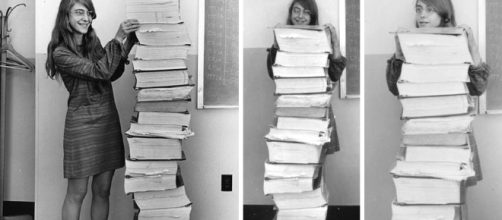President Barack Obama handed out the last batch of Medals of Freedom he will ever give out. Recipients included Hollywood actors such as Tom Hanks and Robert De Niro, artists such as Maya Lin, and sports stars such as Kareem Abdul-Jabbar. Perhaps most deserving of the award were two female computer pioneers, the late Admiral Grace Hopper and Margaret Hamilton.
Admiral Hopper was there at the dawn of the computer age, creating the first business data processing language known as COBOL. COBOL, for a long time, was the standard for business applications and can still be noted in quite a few legacy systems that have been running on mainframes for decades.
Hopper had invented the first compiler, which had the ability to translate computer languages from something most people could follow into the machine code that computers used to run applications. Hopper, sadly, got her Medal of Freedom posthumously.
Margaret Hamilton led the team at MIT that created the software that guided the Apollo spacecraft to the moon and the lunar lander to the moon’s surface. The early space program was, in many ways, a meritocracy that allowed women such as her to do things that they had never been called on to do before. In Hamilton’s case that involved writing stacks of code for an in-flight computer that had less processing power than a modern pocket calculator where the astronauts had to input commands by hand.
That same computer helped to accomplish the greatest feat of engineering and exploration humankind has ever undertaken. Later she founded her own software consulting firm, having invented priority scheduling, asynchronous software, and human in the loop decision capabilities.
In many ways, Hopper and Hamilton were unsung heroes in the development of information systems that has come to dominate every aspect of life in the 21st Century. They were both known to people who worked in IT, of course, but generally not to too many individuals in the outside world. Their winning the Medal of Freedom may go some way to correcting that fault, giving the two female computer pioneers the recognition that is their due.

